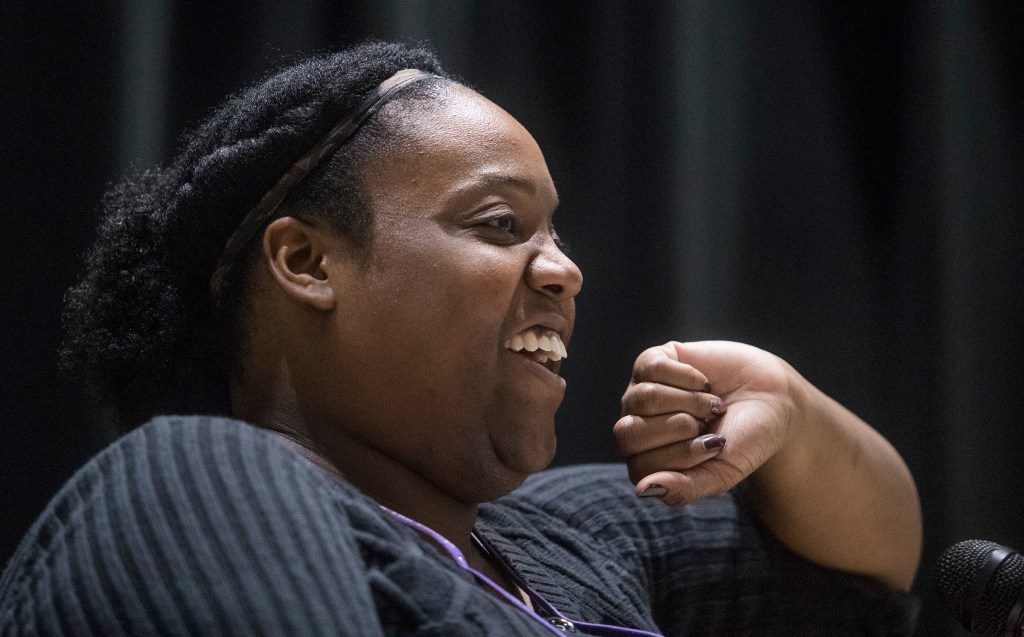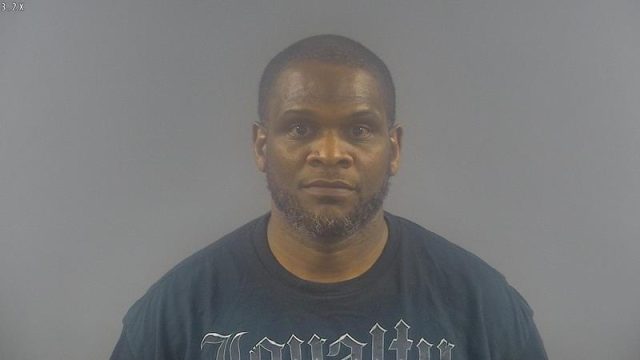Learning to Listen
Published 12:09 pm Wednesday, November 8, 2017

- Natalie Croney
When my sister was eight, she almost set the kitchen on fire. This was not a malicious attack. She was trying to tend to food cooking on the stove, but a rag caught on fire. She threw it as to not get burned. She ran up to me while I was engrossed in a conversation with our dad and said that she “did something bad”. I heard her words like I hear music in a restaurant — well enough to recognize the tune but not well enough to join in at the right verse. I shrugged her off only to walk into the kitchen and find a wooden chair partially in flames right in front of the gas oven. After my dad and I put the fire out, I apologized to her because she told me what I needed to hear and because it seemed that the point I was trying to make with Dad was more important, I didn’t listen.
My sister taught me three lessons that have served me well as a teacher: Listening requires focus; listening is an act of humility; and listening leads to actions. To this day, I make teaching these truths a part of what students learn.
Trending
Listening Requires Focus
My 10th grade classes are full of energy. When we have our first classroom discussion it is not uncommon for them to interrupt each other. They get excited and allow the ideas to stampede from their lips unbridled. Some of the statements they make were unsupported, and some of the points are just bad. More troubling is the fact that none of the faulty ideas can be fixed because once a student blurts out his or her thought, they are finished with the “conversation”. This battle of verbiage is the antithesis of why we have classroom discussions.
One year, I mentioned to them that our group discussions weren’t working, and as a class, we came up with guidelines for discussion. Each student wrote down what he or she thought constituted a good discussion. Unanimously, they wrote that we had to listen to each other. When asked why listening was so important, one student said that we could learn more if we listened. Another noted that people would be more willing to speak if they knew that someone was listening. All of this was true, so we worked on our next step. It was easy for them to write that listening was essential, but they weren’t prepared to execute this skill.
They felt that discussion was about getting individual thoughts out, but without good questioning and quality thinking, discussion becomes noise. The glue that holds question and response together is the ability to listen. Our first task was to practice holding our peace and listening without speaking. Their thoughts roared in their minds, but they had to stifle their words. Some students fidgeted. Others sighed heavily or hummed like Marge Simpson because they were willing themselves not to speak. Once they mastered the silence, we learned the intent behind the wait.
They had to listen with the intent to hear instead of the intent to respond. This is where things got interesting.
Listening is an Act of Humility
Trending
To listen is to be open to the fact that others may know something that you do not. It is to acknowledge the humanity and validity of another person. To be listened to is to make oneself vulnerable to the critique of others — to have one’s thoughts evaluated. This idea is a hard sell for 10th grade students.
I asked them how they would respond if they shared an important idea with me and I responded with something off topic or misinterpreted what they said. One student said she would never share anything with me again. Another said that she would get angry. They needed to understand that listening produces vulnerability caused by the sacrifice of self.
Young people remember every value set forth by their religion, their parents, and their community. They express these values with conviction. When they listen with the intent to hear instead of respond they are humbling themselves to each other. This humility levels the playing field because they are vulnerable in the same way.
My students grew to understand that when a peer questioned their ideas, it wasn’t an attack. When a peer responded in disagreement, they were taking issue with the idea and not the person. Listening to how their ideas were interpreted made them work harder to close gaps in their thinking. They became specific when speaking and focused when listening. One student who was notorious for blurting out who was going to hell or which ideas were stupid began to question more than he declared. His new key phrase became, “Oh, I see what you’re saying.” This didn’t mean that he agreed; it meant that he understood.
Once they learned to listen well, they could take on deeper, richer tasks.
Action is the Byproduct of Listening
At the end of the year, the same sophomore students who once played verbal dodgeball led the class discussion. They sat in a circle in order to make eye contact. In front of them were lists of questions they’d prepared and the book that we read together. The same students who struggled to have a five minute discussion sustained a 30 minute student-led discussion about themes such as suicide, bullying, and faith. There were times when the conversation was intense, but I didn’t save them. I watched them wrestle with new ideas, and even when they didn’t agree, they understood why a peer might think differently. They learned more that day then they ever could with me being the lone questioner, and their growth as listeners did and will continue to positively shape their future relationships and decision making. Each time they listen, they will change. They will learn about themselves through learning about others.
When students make mistakes and set their worlds on fire, it is usually because they, like my sister 20 years ago, are trying to make sense of a very adult and chaotic world. My job is not to shout over them or continue my important conversation. My job is to be their hearing aid and increase the volume on important ideas they gloss over. Listening helps students hear brilliance, catch misconceptions, and make quality decisions that change the trajectory of their lives if they act on what they learn.
Natalie Croney is a teacher at Bowling Green High School. She serves as the English Department Head.






